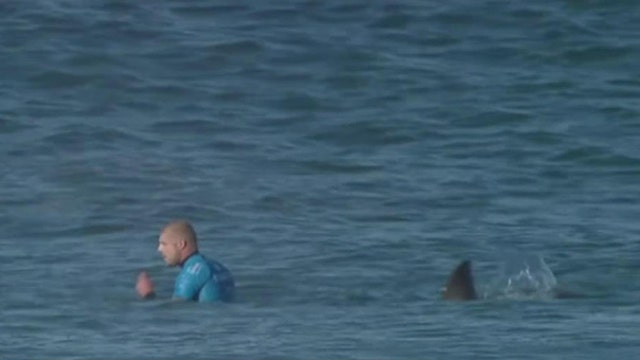Cape Cod releases anti-shark plans following record number of shark sightings
Officials from the Cape Cod towns are taking measures to make the surrounding waters safer for visitors with the release of the “Outer Cape Shark Mitigation Alternative Analysis” report.
Workers together were the towns of Chatham, Truro, Wellfleet, Eastham, Provincetown, and Orleans.
They joined together with the Superintendent of the Cape Cod National Seashore and the Chief Executive Officer of the Atlantic White Shark Conservancy.
However, as helpful as those alternatives are, officials claim that nothing can completely guarantee the safety of those who take to Outer Cape Cod waters, following a summer that saw 161 Great White Shark sightings in the area between June and August alone according to a recent report by NBC News.
Based on a 6-month study conducted by the Woods Hole Group, the report revealed that there were 27 shark migration strategies, with the purpose of providing comprehensive data regarding the migration technologies of sharks in the region. The report also provides a number of strategies to improve public safety throughout beaches across the Outer Cape-area.
“With so many stakeholders with varied interests, it was essential that we reviewed our options carefully and scientifically. The alternatives analysis provided us a research-based, unbiased review of options so that we would have a clear understanding of which options could be suitable for our Outer Cape beaches,” said Rae Ann Palmer, Truro Town Manager. “Those options included any adverse impacts to the environment or to the humans recreating in our waters; and most importantly—the effectiveness of preventing a shark/human interaction. It is very important to us to use research and science-based decision making that allows us to best protect the public’s safety, trust and tax dollars.”
"The Outer Cape Shark Mitigation Alternatives Analysis, consolidates ideas, available technologies, and current strategies for shark mitigation and will provide invaluable information for future shark management decisions,” Superintendent of the Cape Cod National Seashore Brian Carlstrom said in a Town of Truro press release on Wednesday.
The report divided the shark’s migration strategies into three separate categories, the first being technology-based, the second barrier-based, and the third being biological-based, with strategies including tagging, acoustic detection, magnetic, culling, contraception, barriers, visual detection, adaptive camouflage as well as modifying behavior and scent smell.
Each category and strategy have varying degrees of potential success. According to report findings, visual detection carries a very low rate of success, as once a shark has come into one’s view, the shark will already be far too close to swimming areas.
Tagging efforts only offers minor insight into sharks’ movements, as only a small portion of the shark population is tagged. Officials say an expanded tagging program may help inform safer human behavior by greatly expanding the sample size sharks.
Other results from Wednesday’s report reveal that buoys do play a role in improving public safety in terms of shark presence and migration, but their deployment does not necessarily mean swimmers are safe from sharks. Meanwhile, sonar detection systems have not yet lived up to their potential, and no technology-based alternatives have been able to successfully separate sharks from humans.
The report did stress however that the most important finding following the recent shark migration is that no one alternative, or even any combination of alternatives, will assure potential swimmers’ safety, with wearable protection, repellant and camouflage proving inconclusive in preventing a shark attack.
The report highlighted that modifying human behavior is likely the most effective form of shark attack prevention, with the best way for swimmers to minimize the risk of a shark-related attack or fatality is for beachgoers to change their behavior during the peak shark activity season.
Any strategy in question will not be employed until a regional consensus determines the best action going forward, with the Woods Hole Group suggesting a continued effort to expand education and outreach between beaches, town officials and the residents who live there.
GET FOX BUSINESS ON THE GO BY CLICKING HERE
“The Woods Hole Group report is the first step in making an informed decision on the Town of Wellfleet's actions regarding shark mitigation,” said Dan Hoort, Wellfleet Town Administrator. “We know that humans need to modify their behavior when in the presence of this apex predator. Now we begin to determine if there are additional strategies that may be effectively employed to reduce the possible human interaction with a shark.”
“Since its inception, The Atlantic White Shark Conservancy has been committed to supporting research on white sharks in this region and sharing that information with public safety officials, beach managers and the general public to help enhance public safety. We will remain steadfastly dedicated to this mission,” Chief Executive Officer, Atlantic White Shark Conservancy Cynthia Wigren said in Wednesday’s press release.
CLICK TO READ MORE ON FOX BUSINESS
Sharks are protected by state and federal law, meaning indigenous hunting, contraception and species culling is not permitted. The report also uncovered no evidence to support that reducing the local grey seal population would decrease the regional shark population.




















